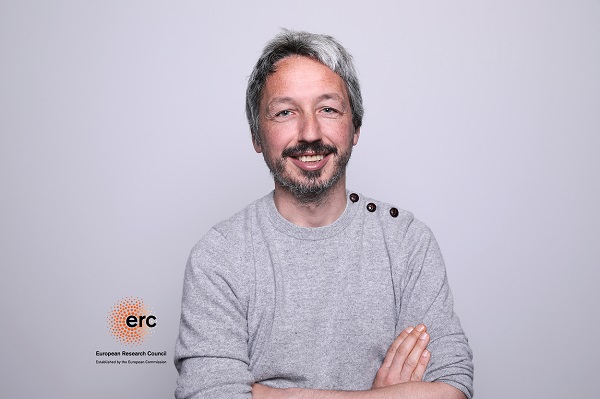 Prof. Benoît Majerus;
Credit: C2DH / University of Luxembourg
Prof. Benoît Majerus;
Credit: C2DH / University of Luxembourg
On Tuesday 17 June 2025, the University of Luxembourg (Uni.lu) announced an upcoming research project which will use artificial intelligence (AI) to reconstruct the history of offshore shell companies.
Benoît Majerus, a history professor at the University of Luxembourg's Centre for Contemporary and Digital History (C2DH), will soon be launching a groundbreaking research project on global tax networks, using advanced AI tools to compile a comprehensive history of offshore shell companies worldwide.
The European Research Council (ERC) has awarded Prof. Majerus an Advanced Grant for the new project DIGISHELL, representing a significant boost his research. Thanks to its large AI component, the project will receive around €3.3 million. This is the first ERC grant obtained in Luxembourg for a history research project.
The university noted that shell companies are part of the infrastructure of global capitalism, as vehicles for tax engineering and maintaining secrecy. However, their very nature - their secrecy, opacity and cross-border complexity - also make them hard to research. Historians have long struggled to find relevant sources for a subject rooted in secrecy and have tended to focus on national case studies for what is a cross-border phenomenon. And yet, argued the university, such national case studies can pave the way for something bigger. Building on the Letterbox research initiative that focused exclusively on Luxembourg, the new project DIGISHELL will adopt a more global perspective.
Prof. Majerus commented: "Letterbox was like a pilot project for Luxembourg, but in reality it's part of a global story. In order to build a coherent narrative, I needed a global approach, taking into account other offshore centres."
DIGISHELL, short for "Digital archaeology of shell companies: infrastructures of global connections and local networks", will widen the lens, adding three new case studies: Panama, the British Virgin Islands and Singapore.
With the Letterbox project, Prof. Majerus wanted to better understand the workings of Luxembourg's financial centre, examining the ecosystem of bankers, lawyers, accountants, notaries and others who contributed to its development. To achieve this, his team had to work through the country's business registry (Registre de commerces et des sociétés), making AI tweaks to facilitate the process.
"The only way that historians can access data about shell companies is by referring to company registers that encompass millions of pages of unstructured multilingual data, and this requires the use of digital history methods," Prof. Majerus explained.
He also acknowledged the new challenges that await his team, including new sets of rules, varying degrees of openness and wide variance in the digitisation of archives. "We’ll also have to manage more languages this time," he noted. "The data we'll have to structure is huge compared to what we did for Luxembourg."
His team plan to use large language models, data analysis methods and visualisation tools based on generative AI to help process this data. Although emerging technologies are still in their experimental phases, they have significant potential to fundamentally transform how historians engage with large-scale collections in the future, according to the University of Luxembourg.
"This research will shed light on a complex international network. The project will not only improve our understanding of how shell companies around the world function and are evolving; but it will also provide a solid foundation for further research in this area," commented Prof. Majerus.
The project is set to begin in early 2026. The findings of this interdisciplinary research will be shared with academics, historians and the public, notably through workshops, peer-reviewed articles and PhD theses, as well as a monograph written by Prof. Majerus.








